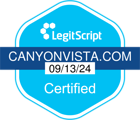Managing anxiety in drug or alcohol addiction recovery can be a challenging process, as individuals often face overwhelming emotions and triggers that can lead to relapse. It is crucial to develop healthy coping mechanisms to deal with anxiety and prevent recovery setbacks.
Tips To Help Manage Anxiety in Addiction Recovery
Below are eight tips to help manage anxiety in addiction recovery.
- Practice Mindfulness and Meditation
Incorporating mindfulness and meditation into daily life can be a transformative tool for those in addiction recovery. These practices aid in anchoring individuals to the present moment, allowing them to observe their thoughts and feelings without judgment. Mindfulness exercises, such as focusing on the breath or conducting body scans, cultivate a sense of calm and clarity. Types of meditation can vary from guided sessions that focus on healing and relaxation to silent meditation that allows for introspection. Regularly dedicating time to these practices not only diminishes anxiety but also strengthens emotional resilience.
- Set Realistic Goals
Creating achievable goals during recovery can significantly mitigate anxiety by instilling a sense of purpose and direction. Instead of focusing on broad, long-term objectives that may seem daunting, breaking them into smaller, actionable steps can cultivate a feeling of progress and manageability. This method allows individuals to celebrate each milestone, reinforcing their self-esteem and motivation.
- Establish a Healthy Routine
A structured daily routine helps to alleviate anxiety. Consistent sleep schedules, nutritionally balanced diets, and regular physical activities foster physical health and instill a sense of order and control. This routine does not have to be rigid but should provide a framework that guides daily life, making room for fun activities and self-care practices.
- Engage in Regular Physical Activity
Integrating exercise into one’s daily regimen can have profound effects on emotional health. Activities ranging from brisk walking to yoga distract from cravings and anxious thoughts and rebuild physical health. Moving one’s body provides a sense of achievement and self-care, reinforcing commitment to recovery. Exercise also leads to improved sleep patterns, increased energy levels, and a more positive mindset.
- Practice Deep Breathing Exercises
Deep breathing exercises are a powerful and immediate tool for managing moments of anxiety. Taking slow, controlled breaths signals the body to relax. Inhaling deeply through the nose, holding for a moment, and then exhaling slowly through the mouth engages the parasympathetic nervous system, which counteracts the body’s stress response. Deep breathing can be done anywhere and at any time, whether in response to a specific trigger or as a preventative measure throughout the day.
- Maintain a Balanced Diet
Nourishing your body with a balanced diet helps stabilize mood and energy. Consuming a variety of whole foods, rich in vitamins, minerals, and antioxidants, helps to support brain function and can mitigate symptoms of anxiety. Focus on adding lean proteins, whole grains, healthy fats, and plenty of fruits and vegetables into your meals. When possible, avoid processed and high-sugar foods, which can trigger or worsen anxiety. Drink adequate amounts of water to stay hydrated. A balanced diet helps repair the physical damage caused by addiction and enhances cognitive function.
- Engage in Hobbies and Interests
Enjoying hobbies and personal interests is a powerful way to cope with anxiety. Hobbies distract the mind from stressors and foster a sense of accomplishment. You might rediscover a long-lost passion or experiment with new activities.
- Stay Connected with Support Networks
Building and maintaining a strong support network is essential. Engaging with individuals who share similar experiences and challenges provides a sense of belonging crucial for navigating the complexities of recovery. These connections provide emotional comfort, practical advice, and shared wisdom.
We Can Help
If you or someone you care about struggles with alcohol or drug addiction, the professionals at Canyon Vista Recovery Center in Mesa, Arizona, can help. We will provide the resources and tools you need to reclaim your life. Contact us today.











